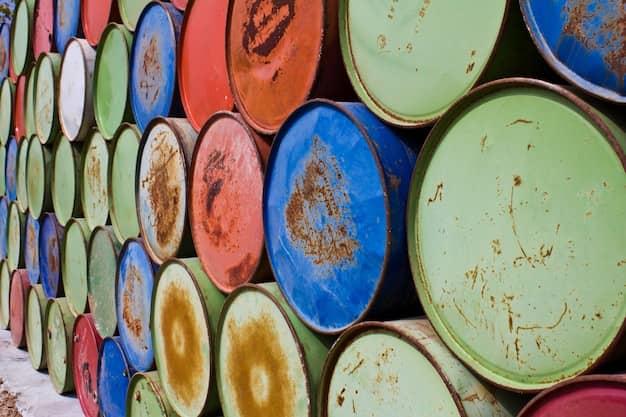
- 29 June 2024
- 1182 Views
Oil waste management is a critical issue in the United Arab Emirates (UAE) due to its significant oil and gas industry. Effective management practices are essential for environmental protection, public health, and sustainable development. This article explores the latest oil waste management methods employed in the UAE, highlighting local SEO keywords and the newest information available.
Understanding Oil Waste
Oil waste refers to any waste material containing hydrocarbons, including used oil, oil sludge, and oily wastewater. In the UAE, oil waste is generated from various sources such as oil refineries, drilling operations, and transportation activities. Proper disposal and treatment of oil waste are crucial to prevent environmental contamination and ensure regulatory compliance.
Current Oil Waste Management Methods in the UAE
1. Recycling and Re-refining
Recycling and re-refining used oil is one of the most effective oil waste management methods in the UAE. This process involves collecting used oil, removing contaminants, and reprocessing it into usable products. Re-refined oil can be used as a lubricant or fuel, reducing the demand for virgin oil and minimizing environmental impact.
- Local Implementation: Several recycling facilities in the UAE, such as Tadweer (The Center of Waste Management - Abu Dhabi), focus on re-refining used oil. These facilities adhere to strict environmental regulations and promote sustainable practices.
2. Bioremediation
Bioremediation is a natural process that uses microorganisms to break down and neutralize oil contaminants in the environment. This method is particularly effective for treating oil spills and contaminated soil. In the UAE, bioremediation is increasingly used to manage oil waste, thanks to advancements in biotechnology.
- Local Implementation: The UAE has implemented bioremediation projects in collaboration with academic institutions and environmental organizations. These initiatives aim to restore contaminated sites and promote ecological balance.
3. Thermal Desorption
Thermal desorption is a technology that uses heat to separate oil contaminants from soil or sludge. The process involves heating the waste material to vaporize the hydrocarbons, which are then collected and treated. This method is effective for managing hazardous oil waste and recovering valuable resources.
- Local Implementation: Thermal desorption units are operational in various industrial facilities across the UAE. These units help manage oil-contaminated waste generated by the oil and gas sector.
4. Chemical Treatment
Chemical treatment involves using chemicals to break down and neutralize oil contaminants. This method is suitable for treating oily wastewater and sludge. Chemical treatment can be combined with other methods, such as mechanical separation, to enhance efficiency.
- Local Implementation: The UAE employs chemical treatment methods in oil refineries and industrial plants to manage oily wastewater and sludge. These facilities follow stringent environmental standards to ensure safe disposal.
Regulatory Framework and Policies
The UAE has established a robust regulatory framework to manage oil waste effectively. Key regulations include:
- Federal Law No. 24 of 1999 for the Protection and Development of the Environment: This law outlines the responsibilities of industries in managing hazardous waste, including oil waste.
- Abu Dhabi Environment, Health, and Safety Management System (EHSMS): This system provides guidelines for managing waste generated by industrial activities in Abu Dhabi.
- Dubai Municipality’s Waste Management Department: This department oversees waste management practices in Dubai, ensuring compliance with local and federal regulations.
Challenges and Future Directions
Despite significant progress, the UAE faces challenges in oil waste management, such as:
- Increasing Waste Volumes: The growing oil and gas industry leads to higher volumes of oil waste, requiring innovative management solutions.
- Technological Advancements: Continuous advancements in waste treatment technologies are needed to enhance efficiency and sustainability.
To address these challenges, the UAE is investing in research and development, fostering public-private partnerships, and promoting environmental awareness
in Conclusion: Oil waste management is a crucial aspect of environmental protection and sustainable development in the UAE. The country employs various methods, including recycling, bioremediation, thermal desorption, and chemical treatment, to manage oil waste effectively. With a strong regulatory framework and ongoing efforts to innovate, the UAE is committed to minimizing the environmental impact of its oil and gas industry.
